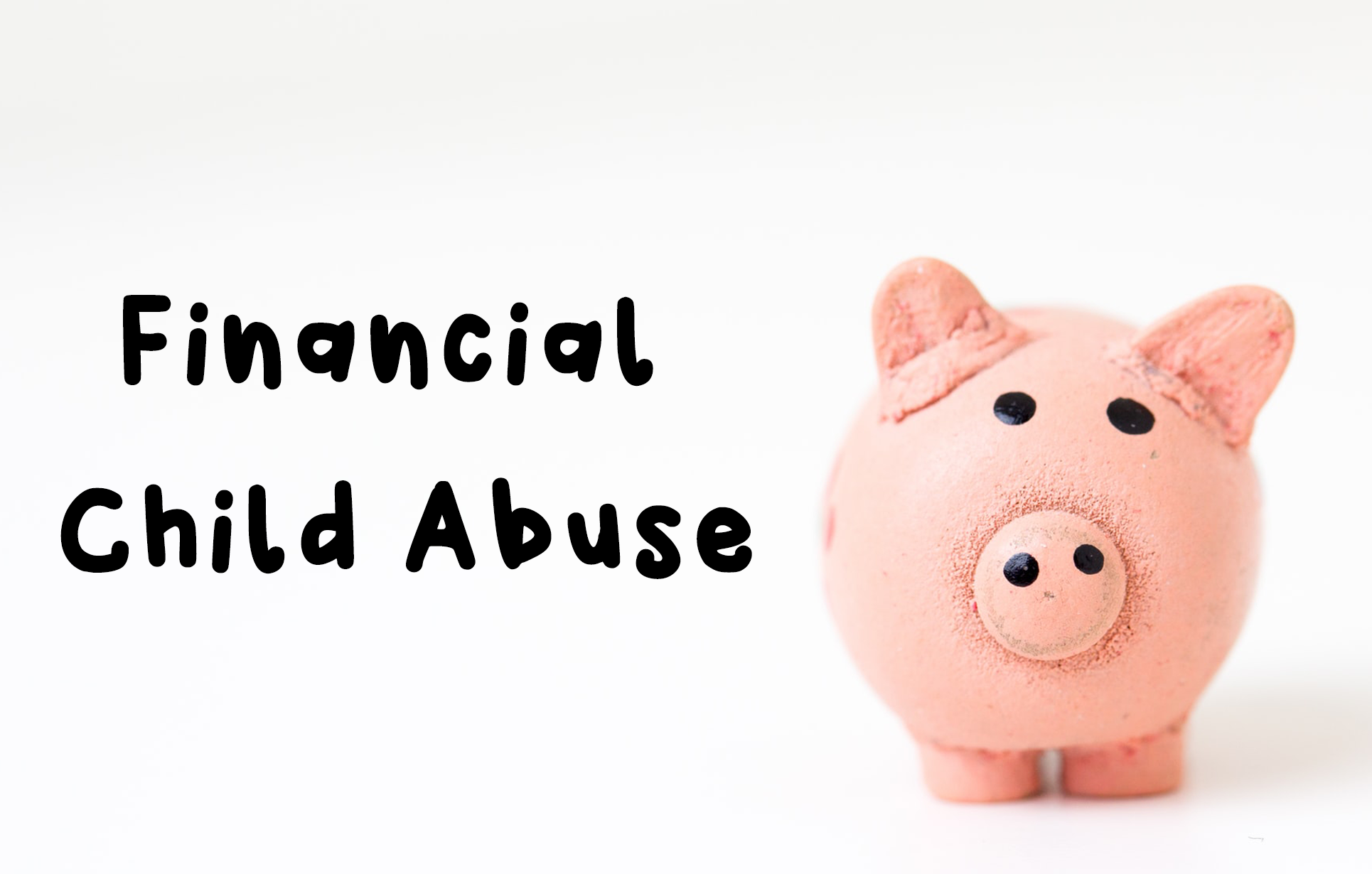
Many people believe that financial abuse only happens between adults. The sad truth of the matter is that financial abuse can happen to anyone. Financial abuse isn’t as easy to detect as other forms of abuse. Since children often don’t manage their own money, they are especially vulnerable to this kind of abuse.
Financial child abuse is the act of using money as a weapon to take advantage of a minor. This is often done to children by stealing and exploiting a child’s money or using their personal information for some economic gain.
Potential Abusers
Parental Financial Abuse: It’s normal for a parent to control a child’s money and personal information. However, when a parent starts to take advantage of that control for their own personal benefit, it becomes abuse. Some parents use financial abuse to exploit, manipulate, and control their children. If this is the case, the child will most likely experience other forms of abuse too. Other signs of abuse could indicate that financial abuse is also occurring.
However, parental financial abuse is sometimes done due to family financial struggles. When a parent has a low credit score or a bad financial situation they’ll sometimes use their child’s name to receive economic gains they could not otherwise get. Although the intention may not have been to abuse the child, this act is still unfair and ultimately hurts the child. More often than not, the debt acquired through the abuse is never paid off, leaving the child with massive debt and a severely low credit score.
Identity Theft: Anyone can be a victim of identity theft, however, children are 50 times more likely to be targeted than any other age group. This is because a child doesn’t have a credit score and is seen as a blank slate. Thieves will use a child’s identity to take out loans or get credit cards in the child’s name without ever paying it off. This form of abuse is the hardest to detect early on, but can be the most financially damaging.
Teen Financial Abuse: When dating, teens can face financial abuse from their significant other. Things like being required to pay for all dates, not being allowed to get a job, and having to ask your partner when you can spend your money are all common signs of teen financial abuse.
Although this may not impact their financial health like other forms, it can paint a warped picture of how a relationship is supposed to be. In romantic relationships, financial abuse is just one of many tactics used to manipulate and control victims. If you suspect a teen is undergoing financial abuse, it’s important to talk to them and help them get out of the relationship before it gets dangerous.
Signs of Financial Abuse
Unfortunately, many children don’t realize they’re being financially abused until they apply for a credit card, open a bank account, or apply for a job. However, by that point, a child’s credit score can be severely damaged. That is why it’s important to look for signals early on.
Some early warning signs that point towards financial abuse include:
- If a child has a credit report
- If a child receives mail addressed to them about payments or account status
- If a child is punished for spending their own money
- If a child has no access to their own money
- If a parent demands monetary gifts be written to the parent instead of the child
- If a parent threatens their child by withholding or taking their money
- If a parent cannot claim a child as a dependent because the child makes too much money
- If a parent or significant other takes part or all the money given to the child (earned or gifted)
If you are an adult, some signs pointing to possible past financial abuse as a child include:
- Having a low credit score before ever opening a line of credit
- Inability to access your bank accounts
- Not being able to open a bank account because one already exists in your name
- Unauthorized withdrawals from your bank account
- Unexplained bills or debt
Impact of Financial Abuse
Financial abuse ruins a victim’s trust in relationships and can make their adult life much more difficult.
Entering adulthood is challenging enough, and starting it off with debt and a low credit score only makes the journey harder. This can make it especially difficult when it comes to finding housing. Landlords look at credit scores before accepting applications, and to buy a house you need to meet the required credit score range. Additionally, employers, and banks all look at a credit score as a deciding factor. Not being able to open a bank account, get a job, or find proper housing can lead to poverty and even homelessness.
If you suspect financial abuse, it’s important to get a credit report. A credit report is the best way to assess the situation. Contact the lenders on the report to understand how to move forward from this. The debt accumulated will still need to be paid off, but you can help put a stop to any further damage done and take action to fix your financial health. Regardless of your situation, you can overcome the effects of financial abuse. Know that you are not alone. Talk to a trusted friend or organization for advice to get the help you need.
Moving Forward
The best way to prevent financial abuse is to spread awareness about it. Knowing the warning signs and red flags can help a child, friend, or parent notice the abuse faster and take the necessary steps to stop it.
